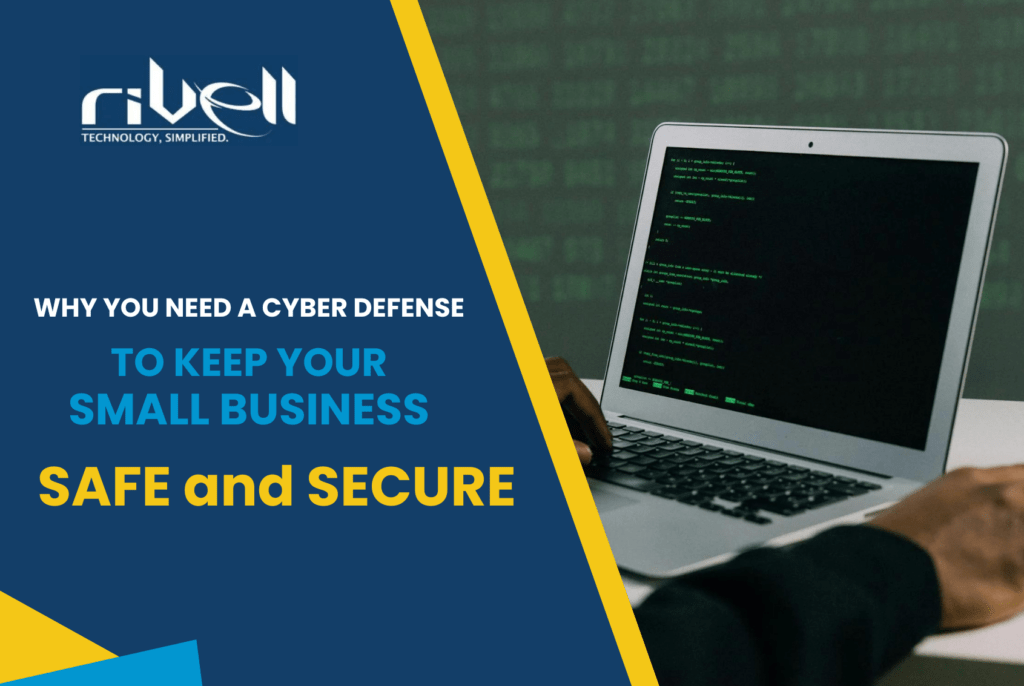Imagine your small business as a store on Main Street. Just as you’d lock the doors at night and install an alarm to protect your physical assets, you need to take certain measures to safeguard your business in the digital world.
In this article, we’ll walk through some straightforward steps you can take to keep your small business safe from online threats.
Why Cybersecurity Matters for Small Businesses
As a small business owner, you might think your business is too small to be noticed by cybercriminals, but the truth is, the small size business often makes more attractive targets. Hackers know that small businesses tend to have less security than big companies, which can make them easier to breach. Think of it as a thief choosing to pick the lock on a backdoor rather than breaking into a bank vault. This is where Cybersecurity Services can make a significant difference, providing tailored solutions to protect small businesses from cyber threats.
1. Training Your Team
The first step in protecting your business is to get your team on board. Many cybersecurity issues start with innocent mistakes made by employees. Here’s what you can do:
- Friendly Reminders: Regularly remind your team about the importance of keeping customer information safe, just like you’d remind them to lock up when they close the store.
- Spotting Tricks: Teach your employees how to spot suspicious emails or messages. Cybercriminals often try to trick people into giving away passwords or clicking on harmful links.
2. Keeping Things Clean and Updated
Just like you take care of your store, take care of your digital tools:
- Update Often: When your computer or software prompts you to update, don’t put it off. These updates often fix security weaknesses.
- Stay Protected: Use security software to keep viruses and malware at bay. It’s like having a security guard for your computer.
3. Backing Up Your Business Data
Imagine if all your business records, customer details, and emails suddenly vanished. Scary, right? Here’s how you can prevent this:
- Regular Copies: Make regular copies of your important business data. This can be as simple as saving files to an external hard drive or using a cloud service.
- Safe Storage: Keep your backups in a safe place. If you’re using an external hard drive, lock it away. If you’re using a cloud service, make sure it’s a reputable one.
4. Securing Your Internet Connection
Your internet connection is like the door to your digital shop. Here’s how to lock it:
- Wi-Fi Security: If your business has Wi-Fi, make sure it’s secure. Set a strong password that only you and your employees know.
- Private Network: Consider using a VPN (Virtual Private Network), which is like putting a privacy screen around your internet connection so snoops can’t see what you’re doing.
5. Extra Locks on the Door
Adding an extra step to your login process can make a big difference:
- Double-Check Identity: Use something called “two-factor authentication.” It’s like asking for two forms of ID before letting someone in. For example, after typing in a password, you might have to enter a code sent to your phone.
6. Working with Other Businesses
When you hire other companies to do things like run your website or handle payments, you need to make sure they’re careful with your information, too.
- Ask Questions: Find out how they protect their digital information and make sure it’s up to your standards.
- Set Clear Expectations: If you’re not comfortable with their security, ask them to improve it or consider finding someone else who takes it as seriously as you do.
7. When Things Go Wrong
Even with the best preparation, things can still go wrong. Here’s how to be ready:
- Have a Plan: Make a simple plan for what to do if your business is hacked. This might include calling a computer expert, letting customers know what happened, and changing all your passwords.
- Practice Makes Perfect: Go over the plan with your team so everyone knows what to do in an emergency.
8. Embracing Simplicity in Your Password Strategy
One of the simplest yet most effective ways to protect your business is by focusing on passwords. Think of passwords as the keys to your digital kingdom – they need to be complex enough that they can’t easily be guessed, but also manageable so that you don’t resort to writing them down on sticky notes.
- Create Strong Passwords: Encourage your team to create strong, unique passwords. A good trick is to think of a phrase or sentence and use the first letter of each word, mixing in numbers and symbols. For example, “I opened my shop in 2010!” might become “Iomsi2010!”. Just a suggestion! 😉
- Use a Password Manager: To keep track of these strong passwords, use a password manager. It’s like having a secure, digital keychain that remembers all your passwords for you, so you don’t have to.
9. Regular Check-Ups and Health of Your Digital Systems
Just as you’d take care of your physical health with regular check-ups, your digital systems need routine examinations to ensure they’re in top shape. This preventive care can save you a lot of headaches in the future.
- Schedule Check-Ups: Set a regular schedule to review your cybersecurity measures. This can include checking for software updates, reviewing your backups to make sure they’re complete, and going through your security settings to ensure they’re still appropriate.
- Stay Informed: Keep an eye on news about the latest cyber threats. By staying informed, you can be proactive about new types of attacks and understand if and how they might affect your business.
By adding these practices to your business routine, you’ll significantly strengthen your defense against cyber threats. Cybersecurity Services NJ isn’t just a one-time setup; it’s an ongoing commitment to protecting your business, your employees, and your customers from digital dangers. With these measures in place, you’ll have peace of mind, knowing that your small business is taking smart, effective steps to stay safe in the online world.
Conclusion
In conclusion, cybersecurity might seem overwhelming, but it doesn’t have to be. With these simple steps, you can create a secure foundation for your small business. Typically, small and medium-sized enterprises (SMBs) suffer financial losses amounting to $25,000 as a result of cyber attacks. Just like running a physical store, it’s about being aware, staying vigilant, and taking the necessary precautions to protect your business and your customers. Remember, a little effort now can save a lot of trouble down the road. Leveraging Cybersecurity Services NJ can further enhance your defenses, ensuring comprehensive protection against cyber threats.









